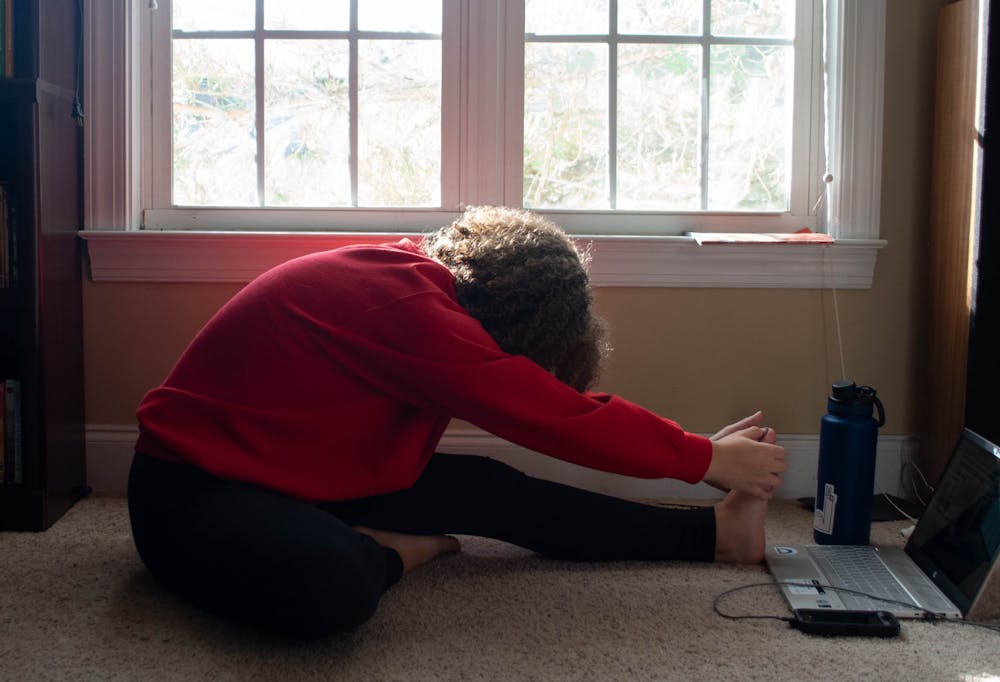When Eva Smolenaars first arrived at Chapel Hill as a first-year, some of the first people she came in contact with were members of the Carolina Athletics Mental Health and Performance Psychology Program (AMP).
The field hockey player from the Netherlands was feeling homesick, so she decided to start scheduling weekly individual visits with Jeni Shannon, the director of AMP.
“It first started off just talking about how to deal with being homesick, and just adjusting to a different culture and being by myself and surrounded by people I don’t already know,” Smolenaars said. “However, after a while I started realizing that I had deeper issues that I had to deal with, and one of them was that I was struggling with an eating disorder.”
Smolenaars worked closely with Shannon for years in her recovery. Now a senior, she no longer attends regular individual meetings, but still has team sessions with sports psychologists. Occasionally she has talked to groups of athletes at UNC about the importance of mental health and her own experiences with the sports psychology department.
“As athletes, you always hear that you have to be hard and tough and that mental health isn't real or that it's an issue that you can solve yourself,” Smolenaars said. “But, I think for me it was important to let other people know that it’s normal to have mental health issues and that we all deal with our own internal stuff.”
The sports psychology department offers an array of different services to UNC athletes including individual and team counseling sessions and support groups that focus on injured athletes, medical retirement and body positivity.
The department also offers performance psychology sessions that aim to help athletes improve on the mental aspects of their game such as composure, leadership and motivation — especially after extended periods of time away from competition during the COVID-19 pandemic.
Women's basketball head coach Courtney Banghart said she appreciates what the sports psychology department brings to the table. Banghart, now in her second year at UNC, emphasized how essential providing athletes with mental health support systems has become in recent years. She said sports psychology sessions have become a regular part of the team’s practice schedule.
“Sports psychology has been something that’s really evolved in my time as a coach,” Banghart said. “You know, when you think about the fact that now you have nutritionists and strength coaches and athletic trainers and sort of these specialized people that are helping your whole body as a competitor, really the last one to join was the concept of mental health.”



